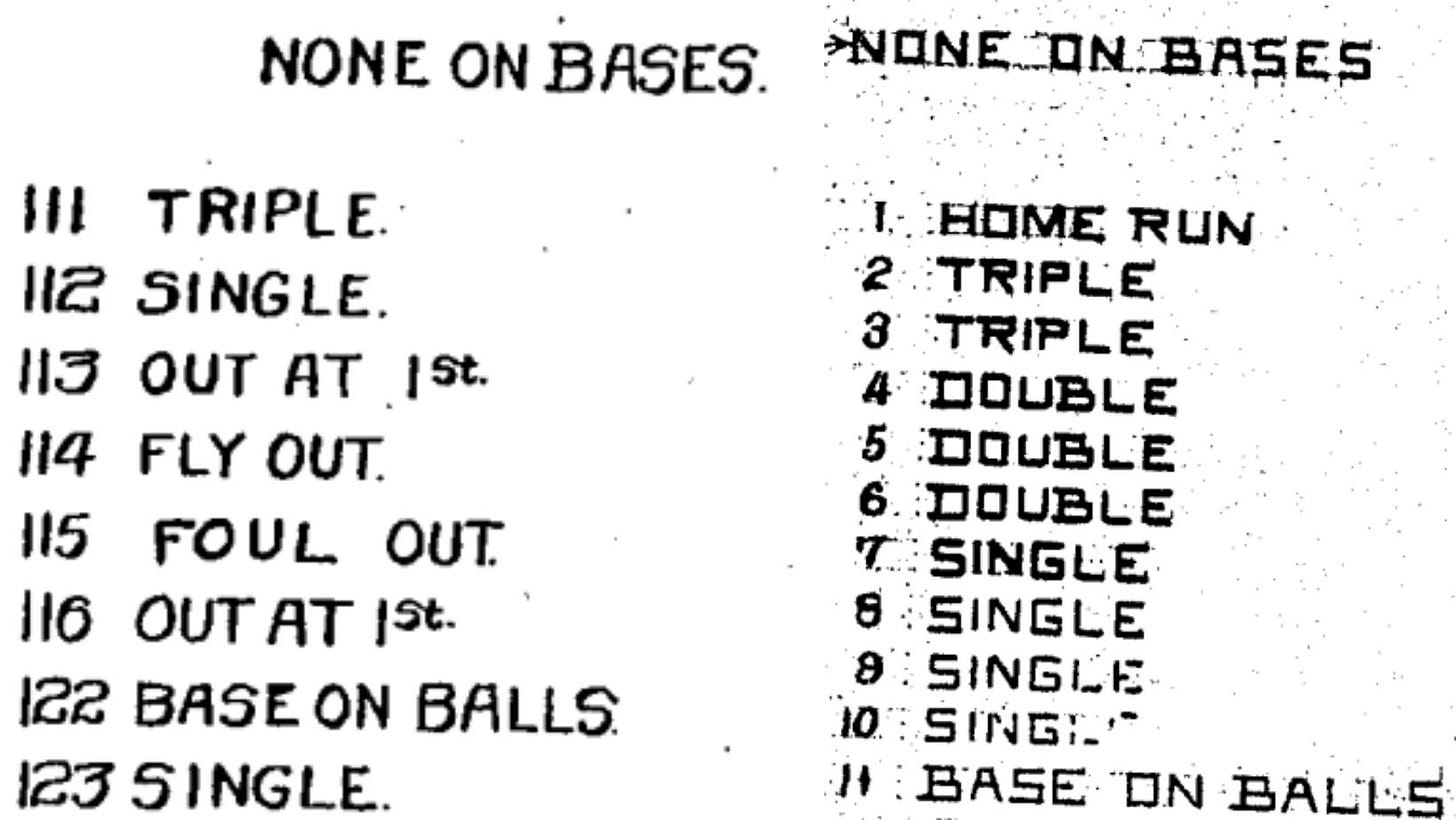None on Bases
As I described two days ago, the boards for both of Charles M. Steele’s baseball games use the same odd phrase that Clifford Van Beek used in the National Pastime patent application: “None on Bases.”
The truth is that this phrase does show up a few times in old newspaper articles. I’ll show you a few examples below.
Assorted Examples
I did a quick search on newspapers.com for the phrase “None on bases.” I had to be selective in examining the results that came back, since many of these results were automatically detected combinations of the words “none” and “bases” from boxscores.
However, there are some examples of that phrase being used to convey “bases empty” or “none on base” in the deadball era.
This is a pretty obvious example: “two out in the ninth, with none on bases.” And, as you can guess, Boston wound up winning the game.
Here’s another example — and, again, it involves a 9th inning comeback when all seemed lost. This comes from a fictional story that you can also find on page 36 of the July 29, 1906 issue of The Chicago Tribune.
The above example, referring to an obscure minor league game in Virginia, is yet another example of this phrase referring specifically to a desperate situation in which defeat was certain — until something sudden and dramatic happened.
In the above example, the phrase “none on bases” is repeated twice, neither of which refers to a dramatic comeback. It seems a bit awkward.
The Search
For the sake of transparency, I’ll show you what my search looked like.
Here is my search for the phrase “none on bases:”
As you can see from this search, the top 4 examples are clearly from play by play summaries. The phrase used here is “none left on bases,” which is a bit different than what we’re searching for. Though there are over 2,700 matches, the vast majority are from either boxscores or from game summaries using the phrase “none left on bases.”
In contrast, here are search results for the phrase “bases empty” in the same timeframe:
Though there are only just over 1,600 matches, it’s clear that most of these matches are exactly what we’re looking for, including the correct context.
I’m not a linguist, but I’ve got to conclude from this simple exercise that “bases empty” was used more frequently than the awkward “none on bases.”
So What?
That’s the big question here.
It’s not clear to me that this matters. The visual similarities between the Steele Baseball boards and National Pastime are enough for me to feel that the games are related. The “None on Bases” phrase is just an interesting extra tidbit.
In the end, though, we’ve got to remember that creating player cards was Van Beek’s idea. I’m not aware of anything like that in any earlier baseball game, and would love to know if anybody has information about something I don’t know.










